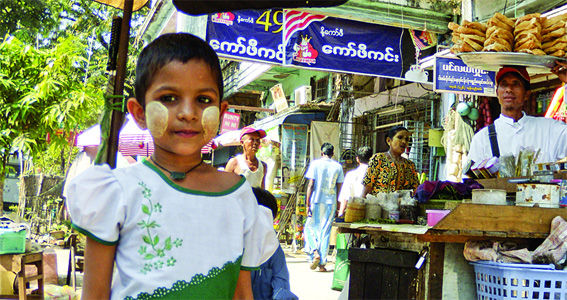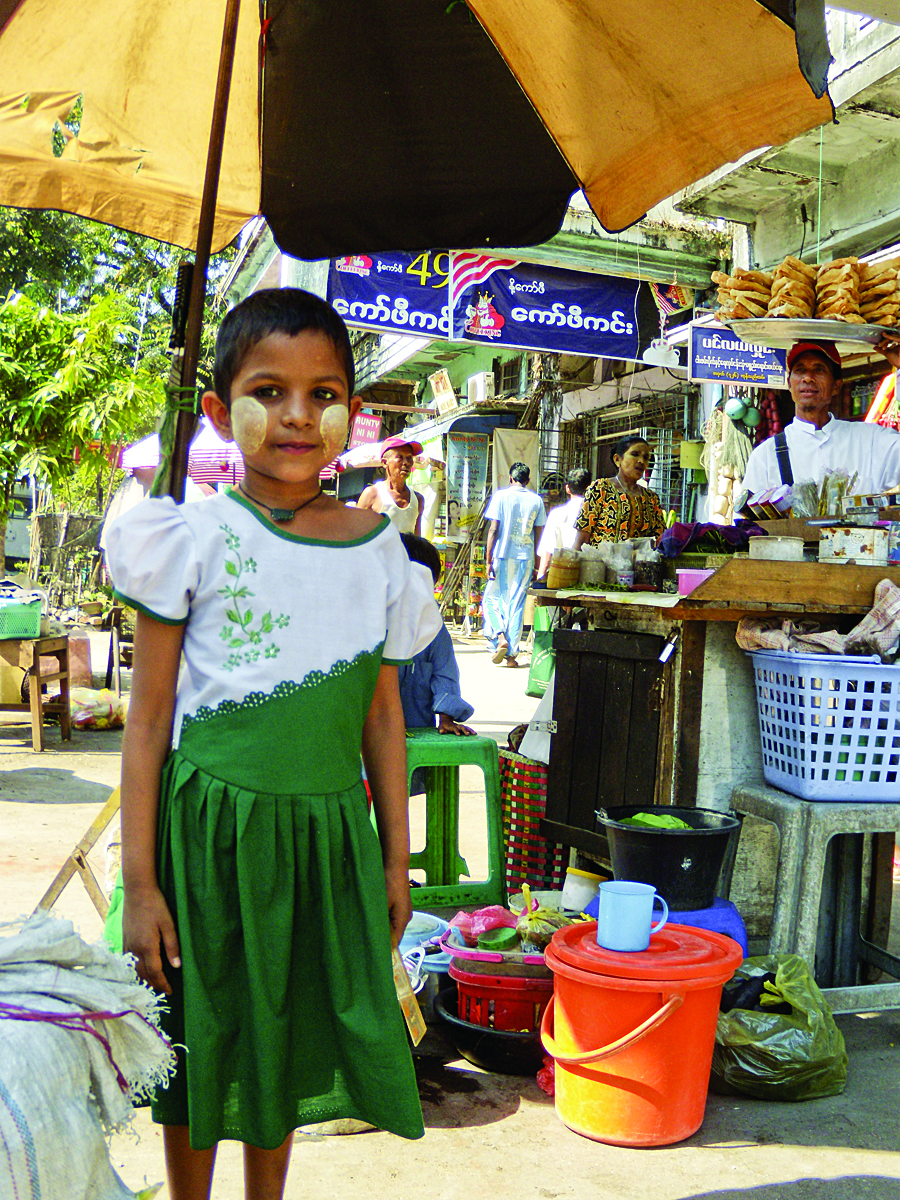Stifled by an oppressive government, Myanmar’s people struggle to be heard. Check out our other two pieces on Myanmar: No Child Left Behind and A Land Lost in Time.
Story by Jenny Kane
Photos by Nina Strochilc
On a bustling street in Yangon, a girl displays her tanaka-smeared cheeks next to a stand selling betel nut.
In a humble home in the city of Mandalay, three old men perform their nightly comedy routine for a small audience. Locals and tourists know the scrawny trio, the Moustache Brothers, for their political jests. However, to the government their jokes are no laughing matter.
The Moustache Brothers spent five years in prison after they sang and “joked about government cooperatives as thieves,” according to Amnesty International. Banned from performing in public, tourists cram into their home for shows. Since their arrest, the brothers, though not related by blood, have been driven indoors; forbidden even from entertaining in traditional Burmese attire.
In Myanmar an oppressive military junta rules, and the brothers are just one of the groups strictly surveyed by the tyrannical regime. Politicians, entertainers, and common people alike endure unjust censorship and punishment. And despite recent plans for a 2010 general election – the first in twenty years – many doubt this will put an end to a history of political corruption.
“It’s going to be a long time before they get democracy,” says Tuong Vu, a University of Oregon professor specializing in Southeast Asian comparative politics. “The government is totally sinister.”
Sinister may be an understatement. In the 1990 general election, the junta overthrew the victory of the National League for Democracy and jailed political dissenters. The Irrawaddy, a newsmagazine founded by Burmese exiles living in Thailand, reported that there were over 2,000 political prisoners in 2009. Among those still imprisoned is elected Prime Minister Aung San Suu Kyi, who has been under house arrest since the election. “They have branded her as an agent of imperialism, and they tried to isolate her from her supporters,” Vu says.
Others fear more serious consequences. For the Karen people, Myanmar’s largest ethnic minority, death lingers around their ongoing struggle for autonomy – the longest running insurgency in the world. As a result of constant civil war, mines pepper their territory. For over sixty years, the Karen National Liberation Army has been embroiled in a bloody battle with the government-allied Democratic Karen Buddhist Army. Tens of thousands have fled as a result of the turmoil. In the Thai border town of Mae Sot, forlorn migrants, mostly Karen, find the shantytowns around the landfill to be a safer home than the ones the left behind.
On a bustling street in Yangon, a girl displays her tanaka-smeared cheeks next to a stand selling betel nut.









